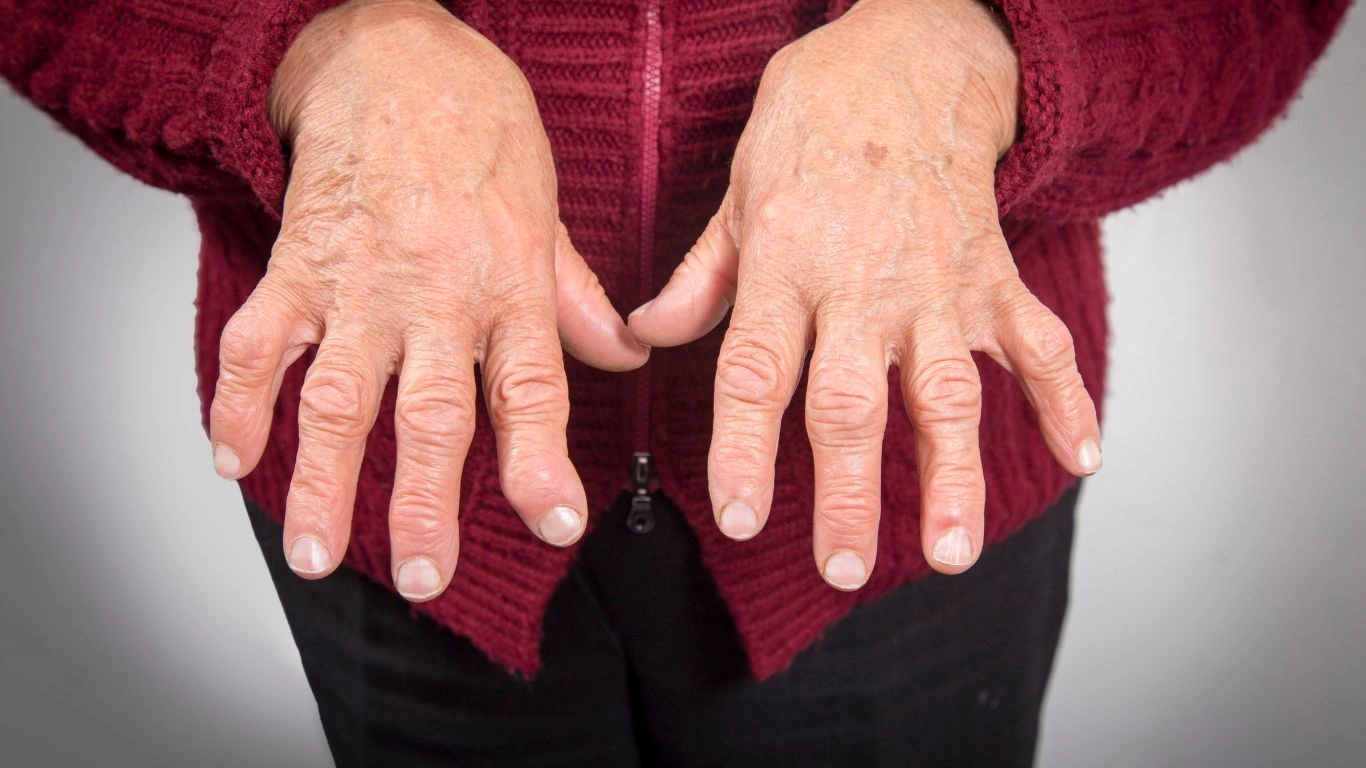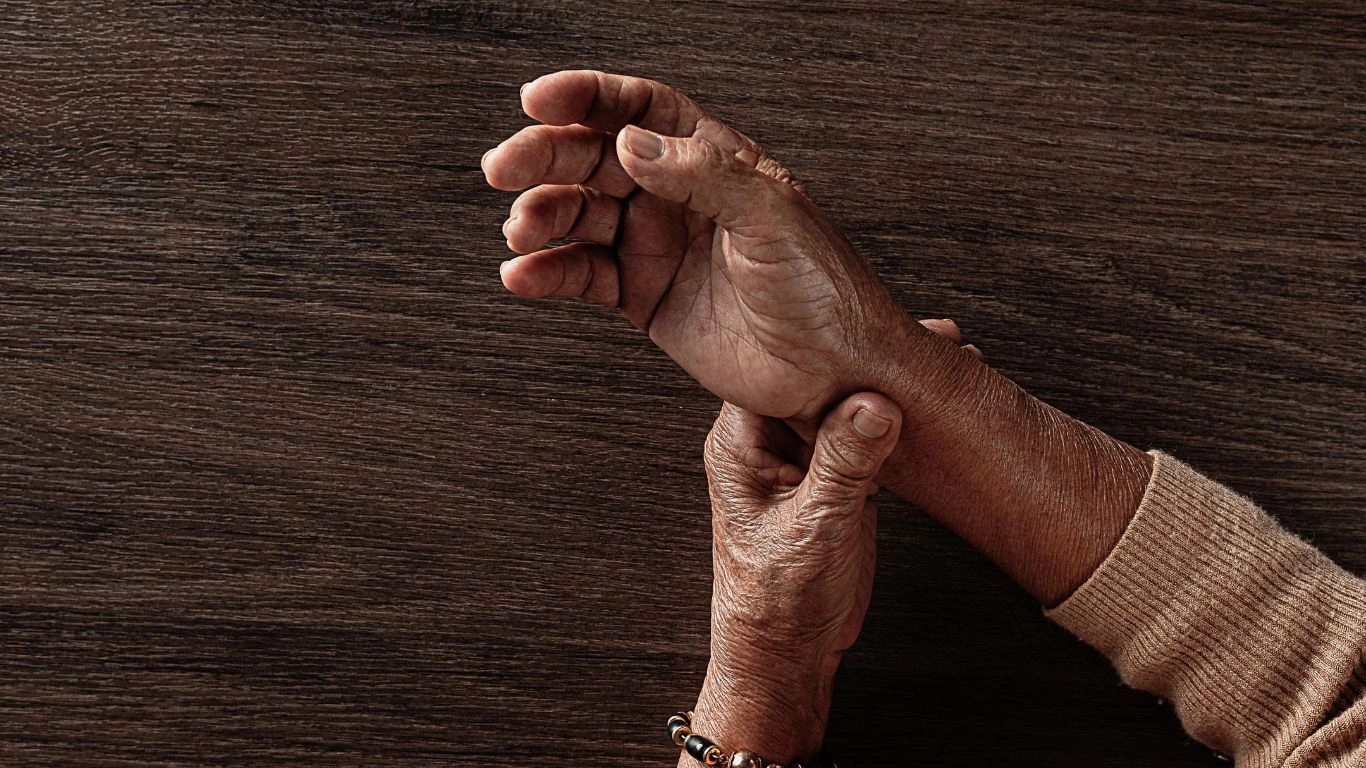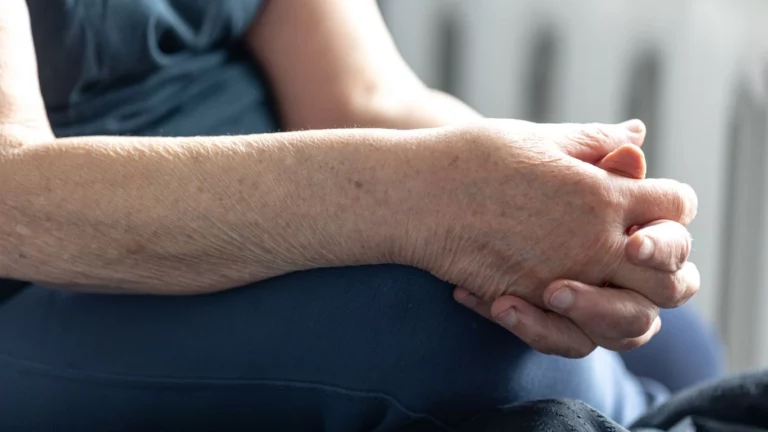Understanding Rheumatoid Arthritis: Chronic Pain’s Mental Health Impact
As a Rheumatoid Arthritis expert, I’ve witnessed firsthand the profound impact this chronic condition has on people’s lives. It’s not just about joint pain, stiffness, and fatigue; the effects of rheumatoid arthritis (RA) extend far beyond the physical. One of the often overlooked consequences is the significant toll it takes on mental health. In my experience, the relationship between rheumatoid arthritis and the impact of chronic pain on mental health is incredibly complex, and many individuals with RA struggle with emotional well-being as much as they do with physical pain.
The Hidden Toll of Chronic Pain on Mental Health

Living with chronic pain can be overwhelming. It can cause a constant mental strain, leading to feelings of frustration, anxiety, and even depression. I’ve had many patients tell me they feel like they are trapped in a cycle where the pain never stops, and this endless discomfort affects their mood, relationships, and overall outlook on life. It’s not just about the physical ache in their joints – the emotional burden can be just as debilitating.
Chronic pain from rheumatoid arthritis doesn’t just come and go; it’s persistent and unpredictable. There are flare-ups where the pain is unbearable, and then there are periods of relative calm where pain might be manageable, but the fear of a flare-up can weigh heavily on the mind. This constant uncertainty can lead to a sense of helplessness that negatively impacts mental health. As the pain continues, individuals may start to feel like they’re losing control over their lives, which can fuel anxiety and depression.
Why Does Chronic Pain Have Such a Strong Mental Impact?
It’s important to understand why chronic pain from rheumatoid arthritis has such a profound mental impact. The relationship between the brain and body is deeply interconnected. When your body is in pain, your brain reacts by releasing stress hormones like cortisol. Over time, these stress hormones can lead to a number of mental health challenges, including increased anxiety, depression, and even cognitive issues like difficulty concentrating or brain fog. I’ve had many patients express how hard it is to focus on their day-to-day tasks when pain is constantly demanding their attention.
Additionally, rheumatoid arthritis can lead to functional limitations, such as difficulty performing basic tasks like walking, holding objects, or even getting dressed. The loss of independence can be emotionally distressing, leading to feelings of isolation, low self-esteem, and frustration. The physical limitations associated with RA often lead to the need for assistance from others, which can be humbling and cause a loss of autonomy.
The Cycle of Pain and Depression

In my experience, rheumatoid arthritis and mental health are often trapped in a vicious cycle. Pain can trigger emotional distress, and in turn, emotional distress can worsen pain. Let me explain how this happens. When you’re in constant pain, your body is under stress. The stress can heighten your pain perception, making the pain feel even more intense. On top of that, being in a constant state of stress affects your mood, often leading to depression and anxiety.
This is where the cycle begins. Depression and anxiety can amplify the pain experience, and the pain, in turn, exacerbates emotional distress. This creates a feedback loop where it feels like there’s no escape. The combination of chronic pain and emotional challenges often leaves individuals feeling as if they’re battling two enemies at once – the physical pain and the emotional toll it takes on their mind.
How Chronic Pain Affects Relationships and Social Life
Another aspect of rheumatoid arthritis that I see frequently in my practice is how it affects relationships and social life. Living with chronic pain can make socializing more difficult. Many patients report feeling guilty for not being able to participate in family gatherings, work functions, or even casual get-togethers with friends. The fear of experiencing a flare-up or dealing with the fatigue that often accompanies RA can lead individuals to isolate themselves.
- Social isolation: Many people with rheumatoid arthritis retreat from their social circles because they don’t want to be a burden or are simply too tired or in pain to engage.
- Relationship strain: Chronic pain can place a strain on relationships, especially romantic ones. The partner of someone with RA may not fully understand the extent of the pain or may become frustrated by their partner’s limitations.
- Emotional distance: The emotional weight of RA can sometimes lead to a sense of emotional distance from loved ones, contributing to feelings of loneliness.
In my practice, I’ve seen firsthand how important it is for patients to have open communication with their support systems. It’s crucial for individuals living with RA to express how they’re feeling, not just physically, but emotionally as well. Support from family, friends, and even mental health professionals can play a significant role in managing both the physical and emotional challenges of rheumatoid arthritis.
Breaking the Stigma Around Mental Health in RA

Unfortunately, there is still a stigma surrounding mental health, especially when it comes to chronic illnesses like rheumatoid arthritis. Many people might feel that they need to “just push through” the pain and not talk about their emotional struggles. I often encourage my patients to seek help if they’re feeling overwhelmed, anxious, or depressed. There’s no shame in addressing mental health, and in fact, it can lead to better overall well-being.
Overcoming the stigma involves normalizing conversations about the emotional toll of RA and encouraging patients to seek the support they need. In my experience, integrating mental health support with physical treatment can lead to improved quality of life. Patients who receive counseling, therapy, or support groups alongside medical treatment for RA often report better outcomes in managing both their physical symptoms and mental health challenges.
Managing the Mental Health Challenges of Rheumatoid Arthritis

Living with rheumatoid arthritis (RA) means facing daily challenges, not just physically, but mentally as well. The psychological toll of dealing with chronic pain can be overwhelming, but there are strategies that can help manage both pain and mental health. In my work as a RA specialist, I’ve found that addressing mental health alongside the physical symptoms of the disease can lead to much better outcomes. Whether it’s through therapy, medication, or lifestyle changes, managing the mental impact of RA is crucial for improving quality of life.
Therapy and Counseling for Rheumatoid Arthritis Patients
One of the most effective ways to manage the emotional strain of rheumatoid arthritis is by seeking professional help. I’ve always encouraged my patients to speak with a therapist or counselor, especially if they’re experiencing symptoms of depression or anxiety. Therapy offers a safe space to talk about the frustrations and emotional challenges that come with chronic illness, something that is often overlooked by others who may not fully understand what living with RA feels like.
Cognitive-behavioral therapy (CBT), in particular, is a therapeutic approach I recommend often. CBT helps patients identify negative thought patterns and replace them with healthier, more constructive ones. This can be especially helpful for individuals with RA who might feel hopeless about their future due to their chronic pain. Through therapy, they can learn how to cope with pain more effectively and improve their outlook on life.
Support Groups: Connecting with Others Who Understand
Another valuable resource is support groups. Whether in-person or online, support groups offer a chance for people with rheumatoid arthritis to connect with others who truly understand their struggles. I’ve seen how powerful it can be for individuals to share their experiences with others who are in the same boat. It creates a sense of camaraderie and understanding that you simply can’t get from someone who hasn’t lived with RA.
- Peer support: Hearing others share their own struggles and coping mechanisms can be incredibly validating, offering both emotional and practical support.
- Reducing isolation: Chronic pain often leads to social isolation, but joining a support group can help alleviate that. It reminds patients they’re not alone in their fight against rheumatoid arthritis.
- Learning new coping strategies: Group members often exchange tips on managing pain and dealing with emotional difficulties, which can be very beneficial for individuals who are still learning how to adjust to their condition.
While some may feel hesitant to join a group, thinking it won’t help, I’ve seen countless patients change their perspectives and feel more empowered after finding a community of others with RA. It’s a space where individuals can express their feelings, ask questions, and gain insights into managing both the physical and mental aspects of RA.
The Role of Medication in Managing Pain and Mental Health

When it comes to managing rheumatoid arthritis, medication is a critical piece of the puzzle. It’s important to remember that there are treatments available that can not only help with physical symptoms but also ease some of the mental health strain that chronic pain can cause. I often work with my patients to create a treatment plan that not only targets the physical aspects of RA but also addresses any accompanying mental health concerns.
Nonsteroidal anti-inflammatory drugs (NSAIDs), disease-modifying antirheumatic drugs (DMARDs), and biologics are often prescribed to manage the inflammation and pain associated with RA. These medications help reduce the intensity of flare-ups, allowing individuals to feel less pain and discomfort. Less pain, of course, can translate into better mental well-being, as the physical strain eases. However, even with these medications, patients may still experience some level of emotional distress, which is why mental health support is just as important as physical treatment.
In addition to medications specifically for RA, I’ve found that antidepressants and anti-anxiety medications can sometimes be helpful for patients struggling with their mental health. These medications can address the chemical imbalances in the brain that may be contributing to depression or anxiety. Working closely with a doctor, patients can find the right medication regimen to manage both their RA and mental health effectively.
Mind-Body Practices: Incorporating Lifestyle Changes to Support Mental Health

While medication and therapy are essential components of managing rheumatoid arthritis and its mental health impact, lifestyle changes can play a major role as well. The mind-body connection is incredibly powerful, and certain practices can help individuals with RA reduce both physical pain and emotional stress. I’ve seen how simple changes in routine can lead to significant improvements in mental health for my patients.
Exercise: Moving Your Body to Ease Pain and Improve Mood
Exercise may sound daunting for those dealing with chronic pain, but incorporating gentle movement into your daily routine can work wonders. Regular exercise, particularly low-impact activities like swimming, walking, or yoga, can help reduce joint stiffness, improve flexibility, and enhance overall mobility. But the benefits don’t stop there—exercise also releases endorphins, the body’s natural mood boosters. For many of my patients, even a short walk can provide a sense of relief from both physical pain and emotional stress.
One of my patients, Jane, shared that she was initially afraid to start exercising because of the pain in her joints. However, after starting a water aerobics program, she noticed a huge improvement in both her physical and mental well-being. The gentle movement allowed her to manage her RA symptoms while also boosting her mood. It’s important to start slow and listen to your body, but exercise can absolutely be a game changer when it comes to managing both the physical and mental aspects of rheumatoid arthritis.
Relaxation Techniques and Mindfulness
Incorporating relaxation techniques into your daily life can also reduce stress and improve mental health. Mindfulness, deep breathing, and meditation are powerful tools for calming the mind and relieving stress. When I suggest these techniques to my patients, I remind them that it’s not about completely eliminating pain, but about learning to manage it in a healthier way. Taking just a few minutes each day to focus on your breath or engage in meditation can help reduce anxiety, improve focus, and promote emotional resilience.
Additionally, I recommend incorporating relaxation techniques into your daily routine. Whether it’s through deep breathing exercises, progressive muscle relaxation, or simply sitting in a quiet room and practicing mindfulness, these activities can help reduce the negative effects of stress. Over time, these practices can create a sense of calm and emotional balance, helping you cope with the challenges of RA more effectively.
Building a Personalized Self-Care Routine for Mind and Body

One thing I always emphasize with my patients is that managing rheumatoid arthritis and the impact of chronic pain on mental health isn’t a one-size-fits-all deal. What works for one person might not work for another, and that’s okay. The key is building a self-care routine that supports both your physical needs and your emotional health. It’s all about finding what helps you feel more like *you* again—because RA doesn’t get to define your entire story.
Over the years, I’ve learned that even small daily habits can have a huge impact. A warm bath in the morning to loosen stiff joints, journaling at night to unload the stress of the day, or setting boundaries to protect your energy—these are all things I’ve seen patients adopt and thrive with. RA may slow you down sometimes, but it doesn’t have to stop you from living a fulfilling life.
Elements of an Effective RA Self-Care Routine
- Physical relief: Incorporate gentle stretches, heat/cold therapy, and proper rest. These help with joint pain and fatigue, which can in turn lessen emotional overwhelm.
- Mental recharge: Meditation, nature walks, quiet time, or even listening to music can offer peace and reduce anxiety.
- Nutrition: Eating an anti-inflammatory diet rich in omega-3s, whole grains, leafy greens, and lean protein helps support joint health and may also impact mood positively.
- Sleep hygiene: Prioritizing quality sleep is essential. Chronic pain can disrupt rest, but routines like limiting screen time, sticking to a schedule, and using calming techniques can improve sleep.
I’ve had patients tell me that simply feeling in control of a routine again was empowering. RA can make life feel unpredictable, but building consistent habits—no matter how small—can help you regain that sense of balance.
Recognizing Emotional Triggers and Knowing When to Seek Help

Let’s talk about something that often gets brushed under the rug: emotional triggers. When you live with RA, certain situations can set off stress, sadness, or frustration faster than you might expect. Maybe it’s a flare-up before a big family event, or having to cancel plans with friends—again. Recognizing these emotional triggers is a game-changer.
Through my own years of treating RA and talking candidly with patients, I’ve learned that tuning into these moments gives you power. When you start noticing patterns—like stress worsening your symptoms or loneliness making pain feel heavier—you can take steps to prevent things from spiraling. And if it does feel like too much, it’s 100% okay to reach out for help. No shame, no guilt.
In fact, I always tell people: just as you wouldn’t hesitate to call your doctor for joint swelling, you shouldn’t hesitate to call a therapist if you’re feeling mentally overwhelmed. Seeking support early on can prevent things from escalating into major depression or anxiety, both of which are far too common in people with chronic illness.
When to Reach Out for Support
- You feel persistently sad or hopeless for more than two weeks
- You’ve lost interest in things you used to enjoy
- You’re having trouble sleeping or concentrating due to worry or sadness
- Your RA symptoms are worsening due to emotional stress
- You’ve become socially withdrawn or are isolating yourself
If any of these sound familiar, consider speaking to your healthcare provider or a mental health professional. There are also hotlines, online counseling, and even apps now that can connect you with help almost instantly.
Empowering Yourself Through Education and Advocacy
One of the most powerful ways to take charge of both your RA and your mental health is through education. The more you know, the better decisions you can make about your care. I always encourage my patients to ask questions—lots of them. Understanding your diagnosis, your treatment options, and how pain interacts with mental health gives you back some of the control that RA can sometimes steal away.
And beyond education, becoming an advocate—whether for yourself or for others—can be deeply healing. Some of the most inspiring people I know have RA and use their voices to raise awareness, reduce stigma, and help others feel less alone. It could be as simple as sharing your story in a support group or as big as speaking at a community event. Either way, you’re helping shift the narrative—and that’s powerful.
Trusted Resources for Learning More
- Arthritis Foundation
- Centers for Disease Control and Prevention (CDC)
- National Institute of Mental Health (NIMH)
- Psychology Today – to find a therapist familiar with chronic illness
Use these platforms to explore treatment options, find specialists, and stay updated on the latest RA research and therapies.
Final Thoughts: Healing Happens on All Fronts
As someone who’s spent years walking alongside people dealing with rheumatoid arthritis and the impact of chronic pain on mental health, I can say this with certainty: healing doesn’t just happen in the joints. It happens in the heart, in the mind, and in the daily choices you make to show up for yourself—even on the hard days.
You’re allowed to have bad days. You’re allowed to cry, to rest, to cancel plans. But you’re also allowed to dream, to hope, and to thrive. RA might be part of your life, but it doesn’t get to have the whole story. Keep listening to your body, keep caring for your mind, and never hesitate to ask for the help you deserve.
Disclaimer
This article is for informational purposes only and is not intended to replace professional medical advice, diagnosis, or treatment. Always consult your healthcare provider or a qualified medical professional with questions about your health or medical condition.

Tarra Nugroho is a dedicated Nurse Practitioner with a strong foundation in family and preventive care. She brings both compassion and clinical expertise to her practice, focusing on patient-centered care and health education. As a contributor to Healthusias.com, Tarra translates medical knowledge into clear, empowering articles on topics like women’s health, chronic disease management, and lifestyle medicine. Her mission is simple: help people feel seen, heard, and informed—both in the clinic and through the content she creates. When she’s not caring for patients, Tarra enjoys weekend hikes, plant-based cooking, and curling up with a good health podcast.






